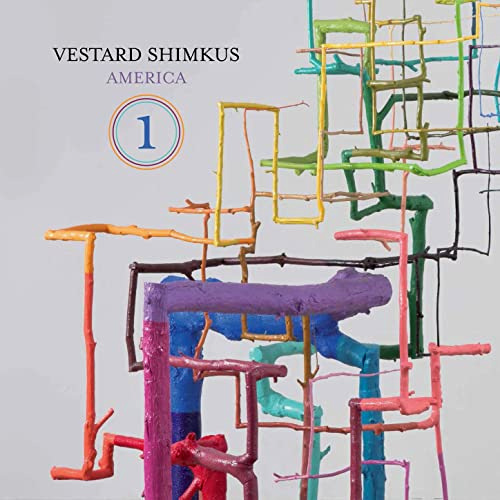

Philip Glass: Mad Rush Charles Tomlinson Griffes: Piano Sonata, A. 85 Elliott Carter: Two Thoughts About the Piano George Crumb: Processional Vestard Shimkus: Piano Sonata "Light Years Away"
When I first heard this recording by Latvian pianist Vestard Shimkus playing some of the piano works of Alexander Scriabin, I immediately realized that not only is he a fine pianist but an exceptional musician as well, and for outstanding music-making you can't have one without the other. Proof of Shimkus' ability to perceive the impulse, the essence behind the notes is readily apparent in how he manages to somehow make the music of Philip Glass sound soul-stirring and emotive. My apoligies to Philip Glass, but as minimalism implies, this type of music is bare-boned repetitiveness in its most redundant sense. This piece in particular is purposely devoid of any form of development because, as the booklet notes point out, it was written for a special ceremony during which the exact amount of time allotted for the music was unknown, therefore it could be extended or cut short at any moment, and members of the audience wouldn't even notice. But hey, this CD's focus is on American music, and if anything exemplifies American culture at this moment in time, it's minimalism and disposability.
The impetuous and flamboyant nature of the Piano Sonata by Charles Tomlinson Griffes (1884-1920) captures Vestard Shimkus in his element, as he deploys all the expressive miens at his disposal to bring forth its post-romantic character. Written in 1918, it compares well with the late piano works of Scriabin and Szymanowski, but with an eye to the future. In my opinion the best work on this recording, by a badly neglected composer who died two years later from pneumonia at the unjust age of 35. It is considered by many to be his highest musical achievement, but has only been recorded by a handful of pianists including Garrick Ohlsson. Vestard Shimkus certainly gives it full justice, with a top-notch technical and expressive performance.
In the dictionary, under the word "noise", one of the definitions should read: the music of Elliott Carter (1908-2012). I've never been able to appreciate this type of music, which Vestard Shimkus himself describes as hyper-modernism. After all, some of the basic principles of music are form, structure and harmonic stability, none of which are present in Carter's music. Even Shimkus admits that in the past, it seemed inaccessible to him. I must praise him for his courage and resoluteness, because learning, deciphering, memorizing, assimilating and mastering music like this that has no memorable motivic patterns or sequences, must be extremely difficult. He even manages to make the second part of this work, "a single voiced chain of fast and continuous sounds", sonically impressive.
One of America's most unusual and yet fascinating composers has to be George Crumb (b. 1929). With his sometimes tongue-in-cheek exploration of spiritual and cosmic subject matters, he's managed to create a unique sound and style all his own, from which he's never deviated throughout his long and prolific vocation. The 1983 Processional is no exception. The pianist is tasked with applying unorthodox techniques to the instrument, in order to create its nebulous atmosphere of overtones and viable echo effects. This may all seem to be way out in left field, but nonetheless creates a very palpable and concrete soundstage, all the more effective under Shimkus' highly expressive touches.
The program concludes with Vestard Shimkus' own Piano Sonata "Light Years Away" which brings us back full circle to the music of Alexander Scriabin. Had he lived longer, this composer's possible Piano Sonata No. 11 could very well have sounded like this. After all, his final Piano Sonata No. 10, loaded with frequent trills and tremolo effects, was as defined by him: "a sonata of insects born from the sun. They are the kisses of the sun." And this Vestard Shimkus work also finds its inspiration in the stars. The first movement is full of trills and shimmering light effects, whilst the second movement with its awesome complexity and forceful dynamism, creates a state of overwhelmedness from the utter vastness of it all. Could Vestard Shimkus be the Scriabin of the 21st century?
Jean-Yves Duperron - November 2021